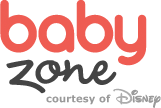Are American Babies Unhappy?

Across 21 industrial countries, the United States ranks at the bottom - number 20 - according to UN's children's organization, UNICEF, study for child well-being. Beating out only the British, Americans are not fairing well. Both shocking and disheartening, questions abound on how and why Americans are raising unhappy babies. Can a country with all the resources and opportunities that we have truly be raising some of the world's most unhappy people?
What Did This Study Measure?
The UNICEF study examined 40 indicators across 6 categories to determine how countries were performing. In those categories, some were objective with measurable indicators, such as Material Well-Being (which include child poverty) and Health and Safety (measured in part by infant mortality rates). But the study also examined subjective categories, measuring a child's response to various questions. Other categories include: Family and Peer Relationships, Behavior and Risks and Educational Well-Being. According to the study, both the United States and the United Kingdom ranked in the bottom third for five out of the six categories.
Related: License to parent: 10 tests everyone should have to pass to become a parent
If We Aren't Happy, Who Is?
At the top of the charts of raising the world's happiest babies were the Netherlands, Sweden and Denmark. With statistics boasting low child poverty and other objective indicators, as well as an increased subjective reporting from children as it relates to their enjoyment of school, positive views on health and so forth, what are they doing right that we're doing wrong?
According to BBC News's article, Dutch society is child-focused, particularly on very young children. "If you take the percentage of young mothers in the labor force, it's not very high in comparison to comparable countries," says Paul Vangeert, professor of developmental psychology at the University of Groningen, "there is a strong tendency for mothers to raise children or take a long time off work after children are born." The Dutch are also notoriously open-minded and communicative, setting the foundation of strong parent-child relationships. Combined with a society that accepts and nurtures its youngest citizens, the Netherlands also mark high in the study's charts because of its sheer wealth.
Can We Do Better?
If you're feeling as disheartened as I was, try not looking at the bigger picture. While the UNICEF report is indeed valuable information to understand issues affecting children of the world, how this information directly impacts your own babies should be viewed from a micro perspective. At the beginning of its review, UNICEF states, "The true measure of a nation' s standing is how well it attends to its children - their health and safety, their material security, their education and socialization, and their sense of being loved, valued, and included in the families and societies into which they are born."
Sounds familiar, doesn't it?
As parents, our mission of raising happy kids by providing for their material needs, tending to their health and safety, and nourishing their minds are those that many American parents strive for. Contending with our modern day society and the implications it has on our baby's upbringing is important for parents to be aware of. But also understanding that the secret to happiness resides deep within an individual gives power back to the parent, and away from categorical indicators and global studies.
And as they say, happy parents raise happy kids.
-By Vanessa Bell
For 25 surefire ways to make Baby laugh, visit BabyZone!
MORE ON BABYZONE
10 NEW ways to play with Baby
7 lies all parents tell each other
10 tips for acheiving career-life balance when you're a work-at-home mom

